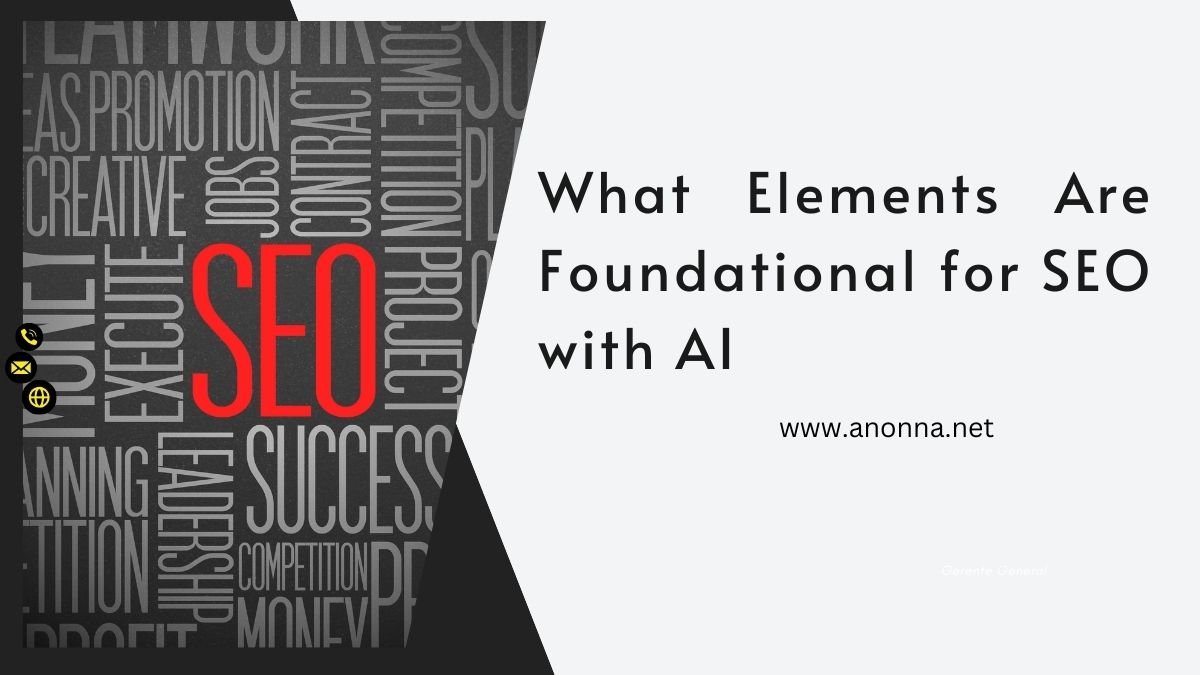
What Elements Are Foundational for SEO with AI? Essential Strategies for Smarter Optimization
THE ART OF AI CONTENT CREATION AND ITS IMPACT ON SEO
AI is transforming the way search engines function, as such, it’s altering the dynamics of SEO, making it more intuitive, dynamic, and intent-driven. Traditional SEO practices engaged manual keyword exploration, link-building, and content creation, but AI has automated and improved many of those processes. Now businesses will have to fit within AI-enabled search engines to keep competing on rankings and visibility.
With AI, search engines can:
✅ Understand search intent so that users receive more relevant results.
✅ Instantly process billions of data to rank pages by content value and user experience.
✅ Provide AI-driven search results (Google’s Search Generative Experience – SGE) to redefine how users discover information.
The risk of becoming obsolete is higher for those companies that cannot evolve, whilst the ones who adopt AI-driven SEO strategies will see their clout in organic search soar.
Why You Should Care about AI-Driven Search Engines
In fact, search engines such as Google, Bing, and Yandex utilize machine learning algorithms and AI models to refine their search results. Examples of AI-driven advancements representing some of the most important are:
📌 Google AI Updates Are The Future Of SEO
✅ RankBrain — AI-driven system to determine search intent and rank pages based on intent.
✅ BERT (Bidirectional Encoder Representations from Transformers) – Enables Google to better understand natural language and conversational questions.
✅ MUM (Multitask Unified Model) — Understand the content of text, images, and video, allowing it to deliver search results with more context.
✅ Google’s Search Generative Experience (SGE) – Generates answers based on its own content and provides the answer directly on search results pages, minimizing clicks to traditional websites.
📌 The Boom of AI Content & Search Optimization
AI Market Trends: AI tools like ChatGPT, Jasper, SurferSEO optimize content for business businesses based towards AI-generated search behavior.
This means that instead of trying to game the system with SEO strategies, AI-generated results need to be optimized for user intent.
What This Article Will Cover
This article will discuss:
✔ Making the case for AI-powered search: How to prove its value to your business
✔ The building blocks of AI-powered SEO and how they play into rankings.
✔ Content creation, keyword research and technical SEO through the lens of an AI future
✔ UX and Engagement-based ranking factors and role of AI.
✔ AI-powered search landscape SEO optimization best practices
🚀 You’ll know exactly how AI is transforming SEO and how you can implement AI-powered strategies to rank higher and stay at the top by the end of this article!
How AI Is Shaping the Future of SEO
In particular, AI is changing the way that search engines handle queries, rank websites, and serve results. While traditional SEO emphasized placing the right keywords, getting backlinks, etc., AI has moved the focus from keyword stuffing to understanding a user’s intent, search behavior, and quality content.
AI makes the search engines more intelligent and efficient by leveraging machine learning, natural language processing (NLP), and automation. This indicates that SEO strategies have to adapt to complement AI-oriented ranking factors.
How Search Engine Algorithms are Changing Because of AI
This is where AI plays a significant role; modern search engine algorithms utilize AI to return more relevant and intent-oriented search results for platforms like Google, Bing, Yahoo, etc. Here are several of the major AI updates that have shifted the SEO landscape:
📌 All the most important Google AI-Powered Updates With their impact on SEO:
✅ RankBrain – the first Google AI-based algorithm, which tries to interpret the user’s intent and relevance to search, rather than simply matching keywords.
Search Engine Optimization Effect: Impactful, handy, and good quality content ranks higher on web pages.
✅ BERT (Bidirectional Encoder Representations from Transformers) — Understanding natural language processing (NLP) and helping Google make search more conversational.
SEO impact: Content is king and pages built for context-heavy long-form content rank higher.
✅ MUM (Multitask Unified Model) – Google’s next-gen AI able to parse text, images, and videos at the same time to provide more profound insights.
SEO Implications: Companies will have to optimize images, videos and text content for a multi-modal search experience.
✅ Google’s Search Generative Experience (SGE) – Displays AI-generated snippets in search results to answer users’ queries directly, thereby reducing clicks on websites.
Fine-tuning for AI-gen search snippets and top answers on websites
👀 How Search Intent Detection is Enhanced with Machine Learning
In traditional SEO, website content matched the exact keywords, now AI is reading the search intent (e.g. Google favors content that directly addresses user inquiries, despite the wording of the specific keyword).
Search patterns are analyzed with machine learning to improve rankings over time.
User engagement metrics (click-through rate, dwell time, bounce rate) have a larger effect on ranking.
🚀 Hot Tip: AI-optimized SEO emphasizes search intent, UX, and multi-format content (text, images, video) over phrases per page.
Why Is AI Important for SEO Strategy?
With AI, SEO professionals can perform keyword research, produce content, and even crawl their websites as agents, which has become an indispensable tool for them. With AI-powered tools at their disposal, businesses are winning in search.
How AI Helps Optimize SEO📌
✅ AI-Powered Keyword Research
SurferSEO, Clearscope, and Ubersuggest — the ones that mine search trends, competitor keywords, semantic search queries.
Third, AI plays a role in predicting the best performing keywords.
✅ Content Creation & Optimization with AI
Some AI tools are ChatGPT, Jasper, and Copy.ai, which help you write optimized content according to search intent.
Meta descriptions, headings, and structured content for SEO enhancement are suggested by AI-enabled tools.
✅ Technical SEO Automation
Screaming Frog, SEMrush, and Google Search Console, AI-Sit based pages are auto site audits errors, schema markup, etc.
AI accelerates crawlability, indexing, and mobile performance optimization.
📌 AI-Driven Personalization is Reshaping Search Results
Since we have more resources in the cloud, AI results are customized based on user behavior:
Google has more ways to keep track of you and thus deliver more personalized search experiences such as search history, location, and browsing habits.
Search rankings are adjusted in real-time by AI in response to engagement metrics (time on page, interaction rate).
🚀 Key Takeaway: The world of SEO is getting more dynamic, intent-driven, and personalized thanks to AI. To remain competitive, businesses should utilize AI tools generated for keyword research, technical SEO, and user engagement optimization.
Conclusion – The Future of SEO is AI
📌 Key Takeaways:
✅ AI-powered search engines prioritize user intent, search behavior, and content relevance instead of keywords.
✅ With the help of AI Google is becoming smart and personalized (RankBrain, BERT, MUM, SGE).
✅ Content optimization, search engine ranking improvement, and technical SEO automation with AI tools.
✅ Companies need to adapt to AI-powered search trends to avoid losing organic traffic and visibility.
Basic Elements for SEO in the Age of AI
From text generation to enhanced content optimization and SERP analysis, AI is changing how every aspect of SEO is being done and will continue to change how websites are optimized for search, making SEO smarter, faster, and more intent-driven. Companies that utilize AI-driven content, keyword research, and tech SEO enhancements can gain a competitive edge in SERPs.
In this chapter, we will discuss the basic principles of SEO with AI and how the insights provided by AI can enhance the content, keyword research, and the technical SEO aspect for enhancing search results.
Craft Content with AI-Driven Insights
AI has changed the whole atmosphere of content creation and optimization through data-driven and user-focused strategies. You are no longer rewarded simply for where you place a keyword within the body of your content; search engines take quality, relevance, and engagement into account.
📌 How AI improves the optimization of your content:
✅ Writing High-Quality, User-Focused Content
ChatGPT, Jasper, and Copy are all AI tools. Use AI to help generate SEO-friendly content that aligns with user intent.
Content recommendations based on AI (SurferSEO, Clearscope) for suggesting structure, word count, and language improvement.
Natural Language Processing (NLP)-generating AI can form predictions based on past history and examines user engagement with content through search history and social media involvement. AI’s advanced sentiment analysis can ensure that content meets user expectations.
Why Natural Language Processing (NLP) Matters in Case of Conversational Queries
Voice search and long-tail keywords are becoming important because AI now understands human language patterns in a better way.
With BERT and MUM algorithms, Google has begun to prioritize content that naturally answers user questions.
Intelligent content optimization platforms suggest user queries about how to phrase things better.
✅ Google SGE (Search Generative Experience) How Google SGE is Redefining Content Strategy
SGE essentially presents AI-generated search results in which they condense content without the need to click through to the website.
Businesses will need to optimize for featured snippets, structured data, and AI-curated content.
You need more interactivity with in-depth content to stay relevant in AI-generated search experiences.
🚀 Important: AI content strategy should revolve around user intent, readability, and structured data.
Keyword Researchange & Search Intent Analysis
Keyword research in traditional SEO depended on precise match keywords, but in AI-based SEO, semantic search and searching intent analysis constitute the main focus. AI would provide user-driven insights about what keywords are being searched, what the users expect, and how the queries are changing.
🌟 How AI Assists in Keyword Research & Search Intent Analysis:
✅ Semantic Keyword Discovery with AI Tools
To discover relevant keyword clusters, AI-powered platforms, such as SurferSEO, Clearscope, and Frase, analyze what the pages that rank higher have in common.
Keyword mapping powered by AI helps in recognizing topic-based keyword groups that assist websites rank for a wider search queries.
✅ Long-Tail Keywords & Conversational Search Optimization
This trend continues with the rise of AI-powered voice assistants (Siri, Alexa, Google Assistant).
Conversational queries (e.g., “How to improve website speed?”) need more natural, long-form content.
AI-powered tools can analyze long-tail keyword opportunities and write content that mirrors conversational search tendencies.
🚀 Key Takeaway: Keyword research has become a smarter process with AI due to its inherent characteristic to focus more on semantic search, search intent, and conversational queries to rank them high in the search results.
Improved Technical SEO with AI
Technical SEO is also important to search rankings, and AI-fueled automation can help with convoluted optimizations such as site audits, structured data markup, and speed enhancements.
📌Using AI Tools to Enhance Technical SEO:
✅✨ Site Audits & Automated SEO Issue Fixes
AI-driven SEO tools (Screaming Frog, SEMrush, Ahrefs) can run automated audits to identify:
✔ Broken links & 404 errors
✔ Duplicate content
✔ Slow-loading pages
✔ Mobile-friendliness issues
This leads to AI-powered priorities to fix problems with the maximum SEO impact and the maximum need for urgency.
✅ Meta Tag Optimisation, Internal Linking & Schema Markup Automation
Tools help AI automatically formulate optimized meta titles, descriptions, H1-H6 headers.
Internal linking AI assistants (Link Whisper, for example) tell you how you can link pages together better for improved page authority.
Structured data tools powered by AI automate schema markup application (e.g., FAQ Schema, Review Schema).
🟢 Improving Core Web Vitals & Page Speed with AI Suggestions
Platforms powered by AI analyze Core Web Vitals (Largest Contentful Paint, Cumulative Layout Shift, First Input Delay) and give suggestions:
✔ Image & script compression
✔ Lazy loading for media
✔ Optimizations for faster server response
AI is also used to automate speed improvements, as in the case of tools like Google’s Lighthouse, PageSpeed Insights, and Nitropack.
🚀 NOW YOU CAN: AI automates complicated technical SEO work so you can improve website speed, structure, and search visibility without any massive manual tasks in between.
Conclusion – Dominate SEO with AI
📌 Key Takeaways:
✅ AI content optimization around user experience and search intent.
✅ Long-tail Keywords From AI-based Keyword Research (Being Semantic in Nature) Fetch Better Rankings.
✅ Site audits, internal linking, and page speed optimize with technical SEO automation.
✅ Google’s AI-Supercharged Search Experience (SGE) makes it imperative for websites to create structured, authoritative content.
🚀 Conclusion: AI is transforming the way SEO operates, in order to stay competitive businesses can now choose AI tools to get better insights, automatic generated reports, and get the best output from search engines.
AI In On-Page & Off-Page SEO
Over on-page and off-page SEO, AI is one of the biggest gamehouses in the business, automating optimization to be quicker and smarter. Businesses can improve content quality, metadata, and remove friction from link-building tasks with the help of AI insights while also saving time and effort.
We’ll cover how AI-powered tools can improve on-page SEO and how to drive off-page strategies through AI solutions for backlink building and digital PR.
On-Page SEO Tactics Using AI
On-page SEO generates optimization for the content, metadata, and internal linking with respect to search engines. With AI-powered tools, you can automate most of these processes to target keywords better, engage users more, and ultimately rank better.
📌 The Role of AI in Optimizing On Page SEO:
✅ 1. Real-Time-Based AI Content Optimization
AI writing tools like SurferSEO, Clearscope, and Frase crawl pages that are ranking and analyze how they can optimize their content to rank higher.
There are steps to get our act together: AI recommendations help:
✔ Keyword Density According To Ranking Competitors
✔ Enhance the relevance and readability of content in relation to whether what the user intends to search for.
✅ 2. AI for Improving Metadata, Header Structure & Alt Text
By analyzing competitors and best practices, it generates optimized meta titles and descriptions using AI tools.
They refer to platforms like ChatGPT, Jasper and Rank Math AI:
✔ Make SEO friendly headings (H1, H2, H3) better.
✔ Optimize image alt text automatically making for better accessibility and ranking in image search.
✔ Propose click-worthy meta descriptions for higher CTR.
🚀 Example: An AI tool can read Google’s top 10 pages for a keyword like “best budget travel tips,” and recommend:
A more compelling headline format (think: “10 Budget Travel Tips to Save You Money in 2024”)
Table of content to create flow to the content.
Compelling meta descriptions to drive clicks.
👉 Key Point: Avoid guesswork by allowing AI to automate and improve on-page SEO, ensuring your content, metadata, and keyword usage are optimized.
Improved Off-Page SEO & Link Building with AI
Off-page SEO is important for building your domain authority and credibility, but link-building takes time and is effortful. Machine learning, natural language processing, and AI-led solutions are already automating backlink discovery, digital PR, and outreach processes—freeing up professionals to focus on being link magnets rather than link hunters.
📌 Using AI for Off-Page SEO & Link Building:
✅ 1. Artificial Intelligence Reveals Backlinks For High Authority & Outreach Best Practices
AI-powered tools (Ahrefs, Moz, SEMrush) analyze competitors’ backlinks & recommend:
✔ Sites that are likely to link to your content.
✔ Relevant high authority domains in your niche.
✔ To swap out outdated resources with your content: broken link-building opportunities
AI also automates outreach emails, using data-driven insights to create personalized messages that drive higher response rates.
✅ 2. Emergence of Digital PR Strategy With the Help of AI
AI assists businesses in spotting trending topics and producing PR-friendly writing that journalists and bloggers are eager to cover.
HARO (Help A Reporter Out) + AI: Journalists post queries and AI tools recommend expert answers, so there is a higher chance to earn quality links from news sites.
AI-driven PR programs (like Muck Rack, Prowly) calculate which journalists or influencers are most likely to respond to your content.
🚀 Example:
For example, a business wanting to rank for “eco-friendly home products” can:
✔ Find influencers and bloggers who write about sustainability.
✔ Create personalized email pitches to guest post or get featured in the press.
✔ Discover broken links in sustainability sites and ask them to replace with their content.
🚀 TLDR: AI FedC helps automate your link-building and PR tasks and helps you get high-quality backlinks and brand mentions faster.
Conclusion – How Will AI Affect SEO Optimization?
📌 Key Takeaways:
✅ Automatically optimizing content, metadata, and heading structures, AI improves on-page SEO.
✅ Keyword analysis through AI leads to better targeting of search intent and increased engagement.
✅ Off-page SEO: Use AI to discover backlinks, automate outreach, and uncover digital PR opportunities.
✅ The use of AI tools in SEO optimizes the amount of time spent, accuracy, and chances of ranking.
🚀 Over To You: AI is transforming SEO at every stage, from content development and metadata refinement to increasingly sophisticated link-building techniques. Companies implementing AI-based SEO strategies will experience faster progress, improved positioning, and enhanced interaction.
AI & UX – The Key SEO Ranking Component
AI-driven insights are also changing how user experience (UX) plays a crucial role in SEO — with UX becoming an ever more critical ranking factor. Gone are the days when Google took into consideration just backlinks and keyword density — it is based on user intent, behavioral signals and personalized search results when ranking pages.
In this section, we will discuss the impact of AI on UX-driven ranking factors, and what businesses need to do to optimize for AI-personalized search experiences.
The Change of User Intent & Behavioral Signals — A New Layer of Organic Content & Keywords
Google’s AI-driven algorithms assess the way in which users engage with the results of searches, adjusting rankings accordingly based on metrics like engagement. To optimize your content for AI-driven SEO, it is crucial to understand these behavioral signals.
User Engagement Metrics That Impact SEO:
Click Through Rate (CTR) – The ratio of users who click on your search result after seeing it.
Optimize the meta title and description with AI Lens for better CTR.
As such, they tend to get more clicks than typical results.
Bounce Rate — The proportion of visitors who exit a page without engaging.
Well, AI judges the relevance of the content for the users.
A high bounce rate indicates that content might not align with the intent of the user.
Dwell Time (Time on Page) – The length of time users spend on a page after hitting back to search results.
Longer dwell time means quality content.
AI helps Google decide which content is engaging to users.
Leverage for AI-Driven Ranking Factors:
Writing detailed content that actually answers users’ questions.
Analyze user interaction with your site with AI-powered heatmaps (e.g., Hotjar, Crazy Egg).
Create rich media content (videos, pictures, infographics) for user retention.
Enhance page speed & mobile experience (AI-based tools such as Google PageSpeed Insights assist in optimizing UX).
Key Takeaway: AI ranks content based on user behavior—so if you want to rank well, focus on increasing CTR, decreasing bounce rate, and increasing dwell time.
Personalization & AI Search Experiences
Search engines are moving toward personalized search experiences, customizing search results based on user preferences, location, and previous actions.
How AI Tailors Search Results to You:
Using Search History & User Behavior to Personalize AI Results
Google scans previously searched terms, clicks on results, and trends to bring users tailored rankings.
AI-powered search intent matching guarantees that users only see results that best answer their queries.
And then, after saying it, you know exactly how to optimize for Google’s AI-Driven Featured Snippets & Personalized Rankings.
Featured snippets (position #0) show up when searches have high intent — it’s where Google’s AI has determined the best addressable content needs to load as soon as possible.
Content voice search, AI ranks, and conversational queries.
Schema markup (structured data) helps AI understand the context of your content and personalize them better.
Optimizing for AI Powered Search Personalization:
How to Provide Great Information to Google’s AI Using Structured Data (Schema Markup)
Write for voice search and conversational queries.
Well-written FAQ section for AI friendliness to score more snippets.
Your website should have a good load time, be mobile-responsive, and have a good UX.
Take-Home Message: AI-controlled search experiences will reward content that is well-structured; conversational; and tailored towards the preferences of users, so optimize for snippets, structured data, and AI-automated ranking factors to future-proof your site.
Conclusion – The Role of AI in UX-Driven SEO
Key Takeaways:
A new core update: Using visitor activity such as CTR, bounce rate, and dwell time, AI now determines if users are satisfied.
AI personalizes searches based on past search results, user preferences, and intent.
Include schema markup, featured snippets, and voice search optimization for AI-driven SERP visibility.
A good user experience (fast loading, mobile-friendly, and interactive content) becomes an asset for SEO day after day.
Final Punch: AI is helping SEO to be more personalized, intent-based, and engagement-seeking. Those businesses that follow UX and AI-friendly optimization will rank higher and drive more organic traffic.
Ethical AI & SEO – The Do’s And Don’ts Of Sustainability In Optimization
From content creation to keyword research to technical optimizations, AI has overhauled SEO as we know it. At the same time, as AI is increasingly used in SEO, concerns have been raised around spammy AI-generated content, black-hat tactics, and manipulative algorithms.
As AI continues to shape the future of search, businesses need to adopt ethical AI practices, maintain the quality of content, and be flexible and adaptable to AI-driven algorithm updates to ensure long-term SEO success. In this chapter, we find out how to leverage AI on SEO while remaining compliant with search engines.
Challenge No. 1: Spam and Black-Hat SEO
AI tools can produce original content, but over-reliance on cheap, AI-written content can incur Google penalties.
Google Penalties for AI-Generated Spam Content:
Google E-E-A-T (Experience, Expertise, Authoritativeness, Trustworthiness) Guidelines
With this in mind, Google has come to value material that showcases authentic authority and trust.
If AI-generated content is lacking originality or depth, we may consider it spam.
Helpful Content Update — AI Content Should Deliver Real Value
Google’s “Helpful Content” update focuses on identifying low quality, auto-generated articles that do not actually help users.
Thin or repetitive or AI-generated fluff sites will rank lower.
Google’s Spam Decision on AI-Evoked Content
Red Flags That Can Trigger Google Penalization:
Articles that are auto-generated without any human oversight or fact-checking.
Mass generated pages with keyword stuffing and AI-spun content
Generative AI content that is only written for search, not people.
Balancing AI-Generated Content with Human Expertise:
Use AI as Support, Not a Substitute for Human Writers
AI tools must not replace human writing completely but must enhance research, structuring, and topic ideas.
Give a Human Touch to AI Content
AI-generated content needs to be fact-checked, edited, and polished by writers to enhance its readability and authenticity.
Make Sure AI-Original Content is Engaging & Unique
Steer clear of generic AI text — inject real-world examples, expert quotes, and original takes.
TL;DR: For AI content to not get flagged as spammy or low-quality, it has to be valuable, well-researched, and human-edited.
SEO future-proofing using the best practices of AI
With AI-driven algorithms constantly evolving over time, businesses must remain agile and adaptable to achieve rankings.
Simply Stay ahead of AI Algorithm Changes:
Track Google AI & Core Algorithm Updates
Do not miss a learning opportunity by following Google Search Central Blog & SEO news sources (Search Engine Journal, Moz, SEMrush)
Adjust your content strategies with changing ranking factors in AI (e.g., Google ranking with Search Generative Experience – SGE)
Increase SEO Automation with AI, But Don’t Lose Your Content Authenticity
More technical SEO (site audits, schema markup, meta tag optimization) – AI does it faster.
Use tools to automate tasks or eliminate busy work, but always have humans review for accuracy and appropriateness in voice.
Useful Tips to Enhance AI-Powered SEO Optimization:
Optimizing for smart SEO with AI Tools
SurferSEO, Clearscope, and Frase (ACTUALLY) recommend SEO-based modifications based on live data.
These tools let your AI optimizer identify and help you perfect your site’s internal linking structure (Link Whisper, Screaming Frog).
You are Optimize for AI-Powered Search Experiences
AI changing the character of search results (Google’s AI Overviews & Chatbots), make sure to:
Header with clean and orderly content including short answers.
Voice search and conversational queries optimization.
Using FAQ schema to appear for AI generated search results
Create Long-Form, Value-Driven Content
AI-powered search emphasizes deep, comprehensive content.
Just as ever, expert-backed, multimedia-enriched, evergreen/artisan content will win over AI-generated fluff.
AI should help, not replace, SEO expertise. Ultimately, those businesses that pair AI-use with human authenticity will have their long-term SEO success ensured.
Conclusion – Responsible AI for Longevity of SEO
Key Takeaways:
“AI-generated content sentence has to be well researched, fact-checked, and user-focused to avoid penalties.
Google values expertise, originality, and user intent—don’t spam with AI.
Site auditing, content structuring, and keyword optimization can all benefit from AI-driven SEO automation.
Staying ahead of search with AI from my 2024 predictions on site structure, intro keywords, and getting real!
Wrap Up: When leveraged responsibly, AI provides significant value to SEO, but businesses still need to prioritize high-quality, user-focused content while keeping an eye on AI-driven search trends.
In Conclusion — How to Dominate SEO with AI
The introduction of AI has also changed the dynamic of the SEO process with it becoming more clever, better, and focused on enhancing the user experience. AI-powered tools are revolutionizing search rankings by automating everything from keyword research and content optimization to technical SEO and user experience.
SEO gets faster due to AI, but providers need to ensure ethical and strategic use of AI. Launched by Google, search engines are designed to favor well-structured, user-first quality content, meaning AI spam will work against AI SEO, and human expertise will complement AI to promote SEO, not replace it.
Key Takeaways:
AI is transforming keyword research, content writing, and ranking factors.
Tools leverage AI and machine learning, such as SurferSEO, Clearscope, and ChatGPT to analyze search trends and optimize content for semantic search.
AI search is smart, it focuses more on the intent of the search, engagement, and relevance rather than the historical ranking methods.
Generating content for AI-influenced SEs intends to create quality, user-focused articles.
Content produced by these tools needs human experts to revise and fact-check it.
Google’s E-E-A-T (Experience, Expertise, Authoritativeness, and Trustworthiness) framework rewards genuine, well-researched content.
AI Offers Important Advantages for Technical SEO Automation
While AI site audits automatically identify broken links, slow-loading pages, and crawl errors.
This can be achieved both through technical implementations (like using structured data, schema markup, and optimizing for Core Web Vitals) as well as high-quality, viable content for search engines.
User experience & engagement turns out to be an essential, AI-driven ranking factor.
Dwell time, bounce rate, and click-through rate (CTR): Google uses these as engagement signals.
UX you could find around: AI-powered UX analysis with heatmaps, user behavior tracking, personalization, and so on.
Read: ### How To Blend SEO Analytics and Expertise For Sustainable, Ethical SEO Success
AI has its role to play in content research, automation and technical fixes, but human oversight is crucial for ensuring accuracy and creativity.
Such as spam generated by AI and keyword stuffing are all manipulative black-hat tactics that are avoided by ethical SEO.
Final Words:
AI has particularly disrupted SEO, and those businesses that adopt AI-powered approaches will be ahead of the game. The next evolution of SEO is finding the balance between the analytical might of AI and the creative genius of its human counterpart while ensuring that what you’re creating is valuable, ethical, and optimized for whatever search algorithm might come next.
This implies that businesses can protect their SEO strategies for longevity in search results by employing AI for better insights, automation, and optimization without losing the human touch.
You can see more articles from here.



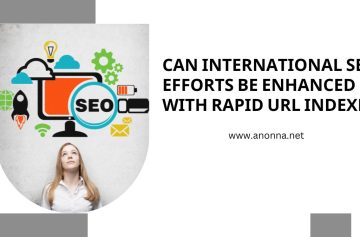

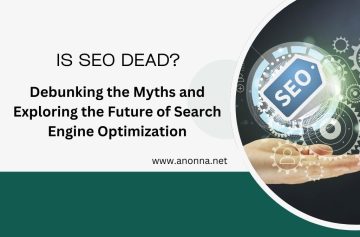
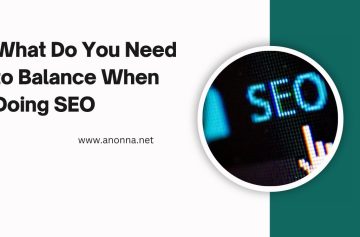
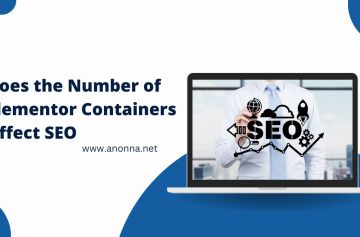
Add comment